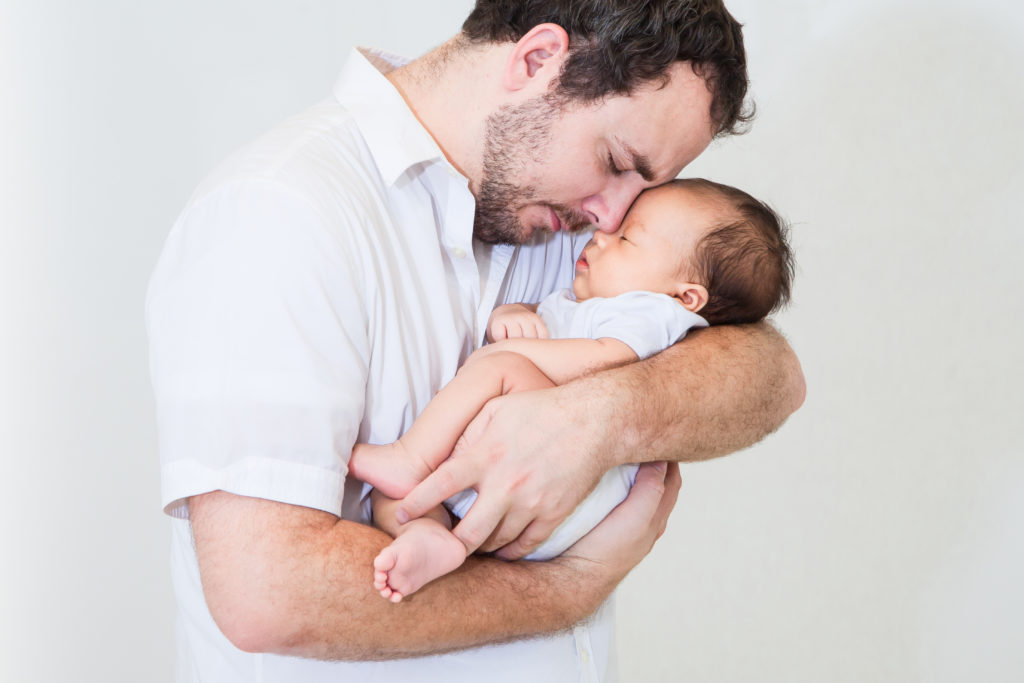Quick Hits
Daily brief research updates from the cognitive sciences

We know that mothers go through multiple physical and psychological changes after birth (and before) including change in brain structures. That may sound surprising to the uninitiated – and it is fascinating. But that has been reasonably well researched.
What, however, has not been well researched, barely at all is that of the father. There have been some psychological studies showing that men do become more caring, but also that their testosterone does also drop. Presumably to help prime the body and brain for more caring – though I reported previously on the complicated role of testosterone.
But is this matched by changes in the brain – here at leading brains we know that if there is a behavioural change there will be a biological, brain, change. And this is precisely what a group of Spanish and US researchers around Magdalena Martínez-García have found out and described in a recently published paper.
The findings are interesting also because they do not show change to some regions we might expect. For example, in mothers changes in the brain limbic regions has been noted. This region is considered our emotional centre so unsurprising. But this region did not seem to change in fresh fathers.
What was, however, seen are small changes in the prefrontal regions, particularly in areas that are associated with something called the default mode network. This is a region that is active when doing nothing but also is involved in so-called mentalizing tasks i.e. being able to think about what other people think – this could be seen as an increase in ability to empathise. Similarly, some of the changes in the prefrontal regions are in regions that are associated with social functions in human beings.
Another area that showed changes was in the visual area – this suggests a change in visual capabilities maybe referring to sensitivity in responsiveness to different visual cues i.e. of a little baby rather than hunting for deer.
The study involved 20 men whose brains were scanned before or after the birth of their first child and a control group of 17 childless men. So, it wasn’t a large scale study but gives us our first glimpse into the changes that men’s brains go through with the birth of their first child.
This hints at increased empathy, changed sensitivity to visual stimuli, and increased social functions. All in pretty good.
On a different note, in case, any of you men are worried, is that men are seen as more positive as fathers, and interestingly “manly” traits (such as strength) are still associated with fathers but also in addition with more caring traits – and this shows in the brains.

Andy Habermacher
Andy is author of leading brains Review, Neuroleadership, and multiple other books. He has been intensively involved in writing and research into neuroleadership and is considered one of Europe’s leading experts. He is also a well-known public speaker, speaking on the brain and human behaviour.
Andy is also a masters athlete (middle distance running) and competes regularly at international competitions (and holds a few national records in his age category).
References
Magdalena Martínez-García, María Paternina-Die, Sofia I Cardenas, Oscar Vilarroya, Manuel Desco, Susanna Carmona, Darby E Saxbe,
First-time fathers show longitudinal gray matter cortical volume reductions: evidence from two international samples
Cerebral Cortex, 2022;, bhac333
https://doi.org/10.1093/cercor/bhac333
More Quick Hits
When Cognitive Games Do Make You Smarter
Quick HitsDaily brief research updates from the cognitive sciences ognitive games have been around for many years now – the first wave of popularity came with Nintendo’s “brain jogging” almost two decades ago now. These games have claimed that they...
How Walking Makes Some People “Super Taskers”
Quick HitsDaily brief research updates from the cognitive sciences hose of you who have followed my writing will know that I have reported regularly on the amazing benefits of exercise and walking on the brain, body, and cognition. However, though...
Older People are Better at Responding to Distress
Quick HitsDaily brief research updates from the cognitive sciences e may have some cliched ideas of older people like the grumpy or angry old man, or woman (but it is often a man). However, research continually shows the opposite. Namely that...
Guided Play Highly Effective for Learning in Children
Quick HitsDaily brief research updates from the cognitive sciences ood news for some and bad news for traditionalists in education. Some believe that starting education early and using classical and traditional learning activities is the best way...
Childhood Fitness Improves Mid-Life Cognition
Quick HitsDaily brief research updates from the cognitive sciences always find these long-term studies fascinating. Imagine launching study and not knowing what the outcomes will be for another 30 years! This is precisely what this study did. It...
The Truth of “Work Hard, Play Hard”
Quick HitsDaily brief research updates from the cognitive sciences e all know the phrase “work hard, play hard” and this drew my attention when I stumbled across some research actually looking into this - and whether this is a good thing or bad...






